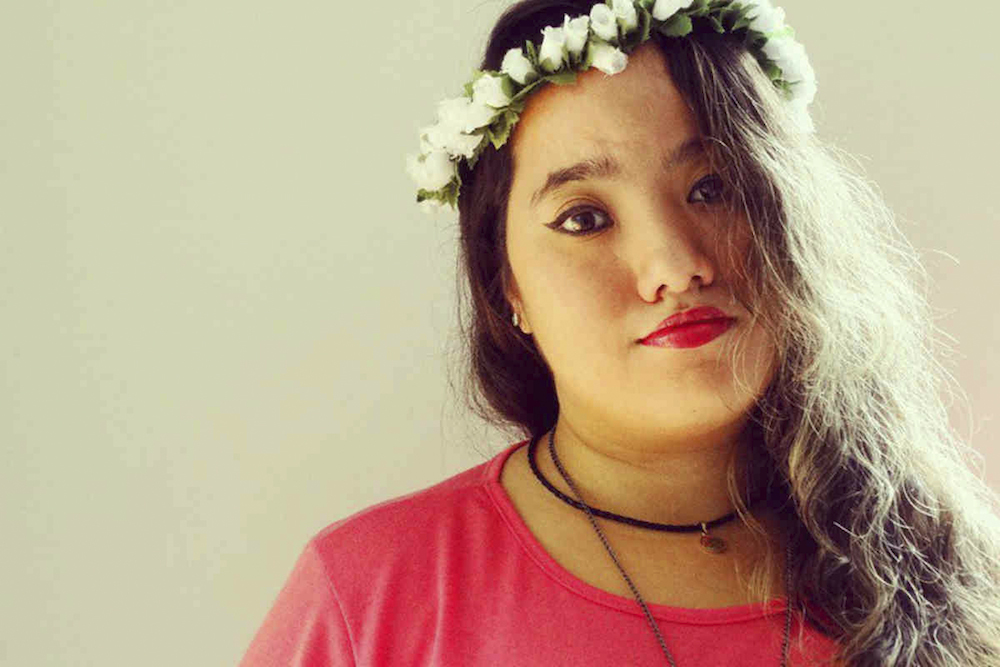Lifeline: A man kisses his two-month-old great-grandson
Nine days after she was born, Ana Carolina Cáceres underwent surgery on her head. The sutures of her skull were fused together, preventing the development of the brain – a condition diagnosed as craniosynostosis-microcephaly. Doctors warned her mother that she was unlikely to survive to adulthood.
Now, 24 years later, Cáceres is looking for her first job, after completing a degree in journalism. As Brazil grapples with a surge in cases of microcephaly, apparently linked to an outbreak of the Zika virus, she has become the object of intense media interest. “I think my story matters because of the hope it could bring expectant parents, no matter what problems their child may have,” she says.
During that first procedure, Cáceres suffered two cardiac arrests. Over the course of five operations in the following nine years, surgeons removed part of her skull to allow her brain to grow.
A scar on her forehead, above her right eye, marks where a prosthesis, grafted on to her skull at the age of seven, was removed two years later after it failed to take hold. “I don’t have any bone in part of my forehead,” she says, “so I grew up being told over and over again to mind that I didn’t bang my head.”

As Brazil reels from Zika, the story of Ana Carolina Cáceres is a source of inspiration. (Reuters)
Her mother, Clara, recalls how in the early years she spent most of her days taking her daughter to paediatricians, neurologists, physiotherapists, psychologists and cardiologists. She suffered repeated convulsions, and sometimes used to beat the back of her head against the sofa to try to distract herself from the pain.
Despite this, Cáceres insists she had a happy childhood playing in the street with the other children in her neighbourhood. She went to school from the age of seven and attended all her classes, with the exception of physical education. “But I still don’t know how to ride a bike,” she admits. “My mother took mine away from me when I was small.”
Cáceres has lived all her life with her mother, father and older brother in a modest house in Campo Grande in Brazil’s agricultural heartland.
Her mother gave up work to care for her, and her father, Ermínio, works as a lab technician. Municipal health authorities have confirmed six cases of Zika in the city since November, three of whom are pregnant women.
Even before the current panic over the rise in cases of microcephaly, Cáceres had given interviews to the local media after the publication of her book, Selfie, which chronicles her case and those of five others living with the condition.
“The idea came out of a conversation I had with a professor at university,” she says. “He was very well educated but he had never heard of the condition, so I decided to write something, gonzo style.”
Last month, as alarm deepened, Cáceres was suddenly thrust into the national spotlight. But in the wake of her fame she has had to contend with questions over the nature of her condition, and whether it bears sufficient similarity to the current spate of children born with microcephaly.
Her mother worries that she may be giving these new parents false hope. “As she is a girl who studied, who developed well, who hardly depends on anyone else, I am afraid that she will give all these mothers hope – and then they could be disappointed in future,” she says.
Specialists acknowledge that the way the condition manifests itself varies enormously.
Cáceres’s case has certainly been a source of inspiration to some. Last week she met Simone Tavares (41), a mother of two, who lives nearby. Both her daughters, Patricia (20) and Adriana (14), were born with microcephaly due to a genetic abnormality.
Alongside magazine cuttings of Justin Bieber, their pink-and-white bedroom is adorned with dozens of medals they have won at sporting events. After meeting Cáceres, they are keen to learn how to read and write.
“After they met [Cáceres], Patricia was sending WhatsApp audio messages to a friend of hers, who also has microcephaly, to tell her she had just met a journalist with the condition,” Tavares said. “She told her that she needs to go back to school to study.” – © Guardian News & Media 2016